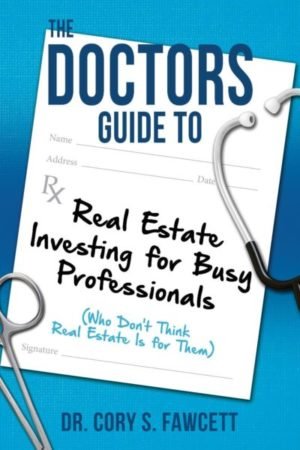As you put together to start investing within the inventory market, you’ll have loads of questions. One factor you would possibly surprise about is how to decide on a monetary skilled.
You possibly can ask household, buddies, or co-workers for names of monetary advisors they like and belief.
Then, you’ll have to slim down your decisions and determine which advisor you’d wish to work with to create your monetary plan.
Interviewing potential monetary advisors is unquestionably price your effort and time.
Should you aren’t positive what to ask, listed here are ten essential inquiries to get you began.
Ask These 10 Inquiries to Assist Select a Monetary Advisor

1. What’s Your Funding Philosophy?
That is an open-ended query as funding philosophy can imply a wide range of issues.
Advisors can both take a passive or an lively method.
An advisor who believes in a passive method designs your portfolio based mostly in your long-term objectives. Then, they won’t change the portfolio a lot until elementary assumptions change.
For instance, they could cut back rising markets shares in the event that they suppose rising markets won’t carry out nicely for the subsequent twenty years. However they won’t cut back rising markets simply because it may not do nicely subsequent 12 months.
An advisor who has an lively method, alternatively, will change your portfolio as market situations change. Most advisors match someplace between a totally lively and a wholly passive method.
If the monetary advisor has an lively method, ask them these comply with up questions:
- How do you determine when to make the change? It will additional make clear their funding philosophy.
- When was the final time you made such a change? How did it carry out?
Equally, advisors may additionally use both passive or lively funds to implement your portfolio. Passive funds are index mutual funds and exchange-traded funds (ETFs) that merely mirror the index.
Lively funds, alternatively, are extra custom-made and attempt to do higher than the index. In case your monetary advisor makes use of any lively funds, ask them these comply with up questions:
- How do you discover and consider lively funds? The extra thorough the analysis, the higher.
2. What’s Your Asset Allocation?
Asset allocation is the roadmap of your portfolio. It determines what goes into your portfolio, as in what number of shares, US shares, worldwide shares, bonds, and so on.
Analysis exhibits that asset allocation is probably the most important determinant of your portfolio’s efficiency. You possibly can ask to see a pattern portfolio to get a way of the asset allocation.
Whereas the perfect asset allocation for you relies in your funding purpose, listed here are some clarifying inquiries to ask:
What’s the Inventory/ Bond Break up?
Typically, the longer your time horizon and the upper your threat tolerance, the extra shares you need to have. The decrease your time horizon and decrease your threat tolerance, the extra bonds you need to have.
Should you’re investing for a retirement that’s 25-30 years away, try to be invested primarily in shares. Should you want the cash sooner, you’ll additionally wish to spend money on bonds to guarantee that the cash is there if you want it.
How Diversified is the Asset Allocation?
Analysis exhibits that diversification not solely reduces threat but additionally improves return. Belongings that greatest diversify one another, transfer in reverse instructions.
For instance, when shares go down, high-quality bonds sometimes go up. So, they’re nice diversifiers.
The shares and bonds you maintain ought to be additional diversified.
For instance, inside US shares, as a substitute of simply holding large-cap shares, it’s higher in case you additionally embrace worth and small-cap shares of numerous industries and sectors.
Worth shares are shares of corporations which might be at present undervalued and small-cap shares are shares of corporations with a smaller monetary market worth.
Analysis exhibits that together with each small-cap and worth shares can enhance your returns.
Equally, a diversified portfolio would additionally embrace worldwide shares, together with worldwide small caps and worldwide worth from numerous industries and sectors.
3. Do You Provide Monetary Planning Providers?
Entry to monetary planning will be probably the most essential requirement for some people. Some advisors will assist reply particular questions on planning for all times occasions like shopping for a house, marriage, or retirement.
In case your monetary state of affairs is extra sophisticated, you would possibly want a monetary advisor who supplies a extra built-in and complete planning service slightly than simply answering some questions.
The monetary advisor will work together with your belief and property lawyer, accountant, and when you’ve got any fairness compensation, together with your firm’s lawyer to supply you complete wealth administration.
Learn: Is Your Cash Advisor Certified? (RR vs. RIA)
4. How Are You Paid and What am I Getting?
Your advisor could also be commission-based or fee-based. Typically, it’s advisable to make use of a fee-based advisor as a result of a commission-based advisor could attempt to make increased commissions by promoting you costly merchandise.
Inside fee-based advisors, there are a number of methods wherein they will cost you. Some could cost a flat payment. Some could cost an hourly payment.
A standard approach to cost charges is to cost a proportion payment on the property managed. On this case, your complete payment consists of advisor charges and fund charges.
The advisor charges will likely be increased for conventional and full-service monetary advisors and decrease for robo-advisors.
The typical payment for a monetary advisor is 1.02% and that for a robo-advisor is between .25%-.50%. Which means that in case you make investments $10,000, you’ll pay $102 a 12 months on common for a typical monetary advisor.
Should you make investments with a robo-advisor, it should value you $25-$50 a 12 months.
Equally, fund charges will likely be low in case you primarily use passive funds like ETFs and extra in case you use lively funds. The typical payment for an lively fund is round .67% and that for a passive fund is .15%.
If all you want is to speculate some cash and you might be comfy coping with your advisor largely on-line, a robo-advisor could also be enough for you.
However in case you want extra planning assist, a better service advisor could also be extra appropriate.
For sure, if you may get the identical service at a cheaper price, the supplier with the decrease payment is a better option.
Charges will be actually detrimental to your portfolio’s efficiency. It is because if you pay a payment at the moment, you’re additionally giving up all of the compounding and future returns of these {dollars}.
Contemplate this instance: In 20 years, 1% annual charges cut back a portfolio’s worth by practically $30,000, in comparison with a portfolio with a 0.25% payment.
5. Can You Carry Down the Charges?
Discover choices to convey down your complete charges. In case your advisor primarily makes use of lively funds, one approach to convey down prices is perhaps to make use of extra ETFs.
Some markets such because the US Giant Cap are very environment friendly and there is little for an lively fund supervisor to do so as to add worth. Therefore, an ETF is perhaps a less expensive alternative in changing an costly lively fund.
6. Can You Present Me Your Returns?
Whereas previous efficiency will not be a information for the longer term, seeing previous efficiency will enable you to gauge your advisor’s effectiveness to a point.
Your advisor ought to be capable of present you previous returns of their pattern portfolio.
If they’re comparatively new, they could present you a backtested efficiency that exhibits how their efficiency would end result in the event that they existed on the time.
Ensure these pattern returns are web of charges – that’s, they take each the fund charges and the advisor payment under consideration.
7. How Do Your Returns Evaluate to the Benchmark?
A benchmark is a yardstick in your account in order that you know the way nicely you probably did.
For instance, when you’ve got a fund that generated 20% in return final 12 months, you would possibly suppose it’s nice. However in case you evaluate it to its benchmark, the S&P 500 Index that made virtually 30%, now, you may not suppose it was so nice.
Every fund you spend money on could have its personal benchmark. In case your advisor invests solely in index funds, the benchmark would be the index itself, and the efficiency of the fund will match or be very near the index.
However in case you spend money on lively funds, they’ll have totally different benchmarks, and the efficiency of the fund relative to its benchmark exhibits how efficient it’s.
Equally, your complete portfolio additionally has a benchmark. Ask your advisor what that benchmark is and the way nicely their portfolio did evaluate to it.
If you evaluate efficiency, have a look at long-term efficiency – during the last 3 years, 5 years, and even 10 years if accessible. Should you discover the portfolio or funds are lagging their benchmarks, ask the advisor why.
8. If I Depart Your Agency, Can I Take My Investments with Me?
This will likely be essential if it’s essential to change your advisor sooner or later.
In case you are invested in ETFs or public mutual funds, you need to be capable of take your investments with you to a brand new advisor.
Your new advisor will then consider the funds and promote those not wanted in a tax-efficient method.
However, when you’ve got any personal mutual funds or different autos that may’t be held outdoors, you’ll have to promote them together with your present advisor and switch out the money.
It will set off capital features tax. In case you have held these investments for a very long time, your capital features may very well be substantial.
9. What Safety Controls Do You Have?
More and more, account safety is turning into high of thoughts for monetary advisors and purchasers due to the heightened safety dangers on the market from scammers and thieves.
Pay particular consideration to what controls your advisor has to stop unauthorized events from transferring cash out of your account.
10. Do You Present Tax-Loss Harvesting, Dividend Reinvestment, and Rebalancing?
Though housekeeping objects like these can appear insignificant, they will make a giant distinction in your portfolio’s efficiency.
It is one of many primary causes to even rent an advisor – so that you don’t have to spend so much of time managing the day-to-day operations of your portfolio.
As you obtain dividends out of your investments, it’s crucial to speculate them immediately to compound your returns over time.
Equally, over time your asset allocation will go off track as some positions recognize and a few lose worth. Your advisor ought to have a disciplined rebalancing technique in order that your portfolio doesn’t go off track an excessive amount of.
Tax-loss harvesting is a course of by which your advisor will incur capital losses in your portfolio to decrease your taxes.
Remaining Ideas
Should you determine you’re prepared to speculate and wish to work with a monetary advisor, asking them the ten questions above will give you plenty of data.
Ensure you perceive their background, expertise, and objectives.
Then ask for and test references of anybody you’re significantly contemplating working with, earlier than investing any of your cash with them.
Lastly, by no means be afraid to modify monetary professionals in case you’re sad with the connection or the outcomes.
Article written by:
Visitor Contributor, Roshani Pandey, an funding business veteran, who’s spent 16 years advising people and establishments on their funds at corporations reminiscent of Goldman Sachs and BlackRock. She created True Root Monetary to assist people make good, life-changing choices about cash in order that they will reside their greatest life. Observe her on Fb, LinkedIn, and Instagram.




![Selecting a Monetary Advisor [10 questions to ask] Selecting a Monetary Advisor [10 questions to ask]](https://wealthcorevalues.com/wp-content/uploads/c4a644bbb058f31b47e576ee1f951b3b.jpg)













